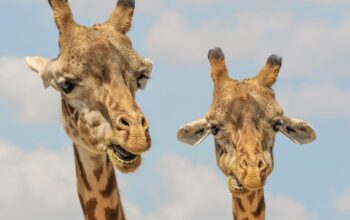
John Tooby and Evolutionary Psychology
John Tooby, who passed away on November 9, 2023, was a pioneering figure in the field of Evolutionary Psychology. As the co-director of the Center for Evolutionary Psychology at the University of California, Santa Barbara, alongside his wife Leda Cosmides, Tooby contributed significantly to our understanding of human nature. His work emphasized the integration of cognitive science, cultural anthropology, and evolutionary biology, leading to a comprehensive framework that maps the cognitive and emotional mechanisms that evolved in response to the adaptive challenges faced by our hunter-gatherer ancestors. This interdisciplinary approach has provided a foundation for understanding how these evolved traits influence modern behaviors and societal structures.
Research and Methodologies Used in Studies
At the UCSB Center for Evolutionary Psychology, Tooby and his team employed a variety of research methodologies, including cross-cultural studies, experimental psychology, and neuroscience techniques. These approaches allowed them to investigate cognitive specializations such as cooperation, group psychology, and human reasoning. For instance, they maintained a field station in the Ecuadorian Amazon to conduct research on psychological adaptations in different cultural contexts, showcasing a commitment to understanding the nuances of human behavior across diverse environments. Their findings have implications for developing new social and cultural theories that are more precise and grounded in evolutionary principles.
Coalitional Instincts and Belief Revision
One of Tooby’s notable insights is the concept of coalitional instincts, which he argued can hinder rational thought within group dynamics. He posited that individuals often prioritize group cohesion over objective reasoning, leading to what he described as a “freezing” of belief revision. This phenomenon demonstrates how political or social affiliations can influence scientific discourse, making individuals hesitant to question shared beliefs, even when faced with new evidence. This is particularly relevant in today’s polarized environment, where scientific consensus can be overshadowed by group identity, impacting fields such as climate science and public health.
The Role of Technology in Human Survival
Tooby also explored the impact of modern technology on human survival and evolution. He noted that advancements in sanitation and medicine have drastically altered human lifespans, allowing billions to survive past puberty who otherwise would not have. For instance, he pointed out that without these technological interventions, only about one billion of the current 5.5 billion people would likely exist today. This statistic highlights the monumental shifts in human life expectancy and survival rates attributed to technological progress, framing it as one of the greatest achievements of modern civilization.

Understanding Learning and Cultural Transmission
In his discussions on learning and culture, Tooby emphasized the complexity of these concepts, arguing that they cannot be treated as monolithic phenomena. He asserted that learning involves changes in the brain’s information states due to environmental interactions, while culture represents the transmission of those states between individuals. This nuanced understanding challenges the assumption that all learning and cultural processes are fundamentally alike, pointing to the need for a more sophisticated approach to studying these areas in psychology and anthropology.

The Intersection of Science and Belief Systems
Another significant theme in Tooby’s work is the tension between scientific inquiry and social belief systems. He argued that while science aims to improve the accuracy of beliefs through testing and feedback, social dynamics can often override this objective. For example, in fields like climatology, the social consequences of questioning established beliefs can lead to resistance against new information. This highlights the importance of fostering environments where scientific discourse can thrive without the fear of social repercussions, ensuring that knowledge evolves in alignment with empirical evidence.

Legacy of John Tooby’s Contributions
John Tooby’s work has left an indelible mark on the fields of psychology and anthropology. His interdisciplinary approach and emphasis on the evolutionary basis of human behavior have opened new avenues for research and understanding. As we continue to navigate complex societal challenges, the insights derived from Tooby’s research will remain relevant, encouraging us to critically examine the interplay between our evolutionary heritage and contemporary issues. His legacy serves as a reminder of the importance of integrating diverse fields of study to better understand the intricacies of human nature and behavior in a rapidly changing world.



